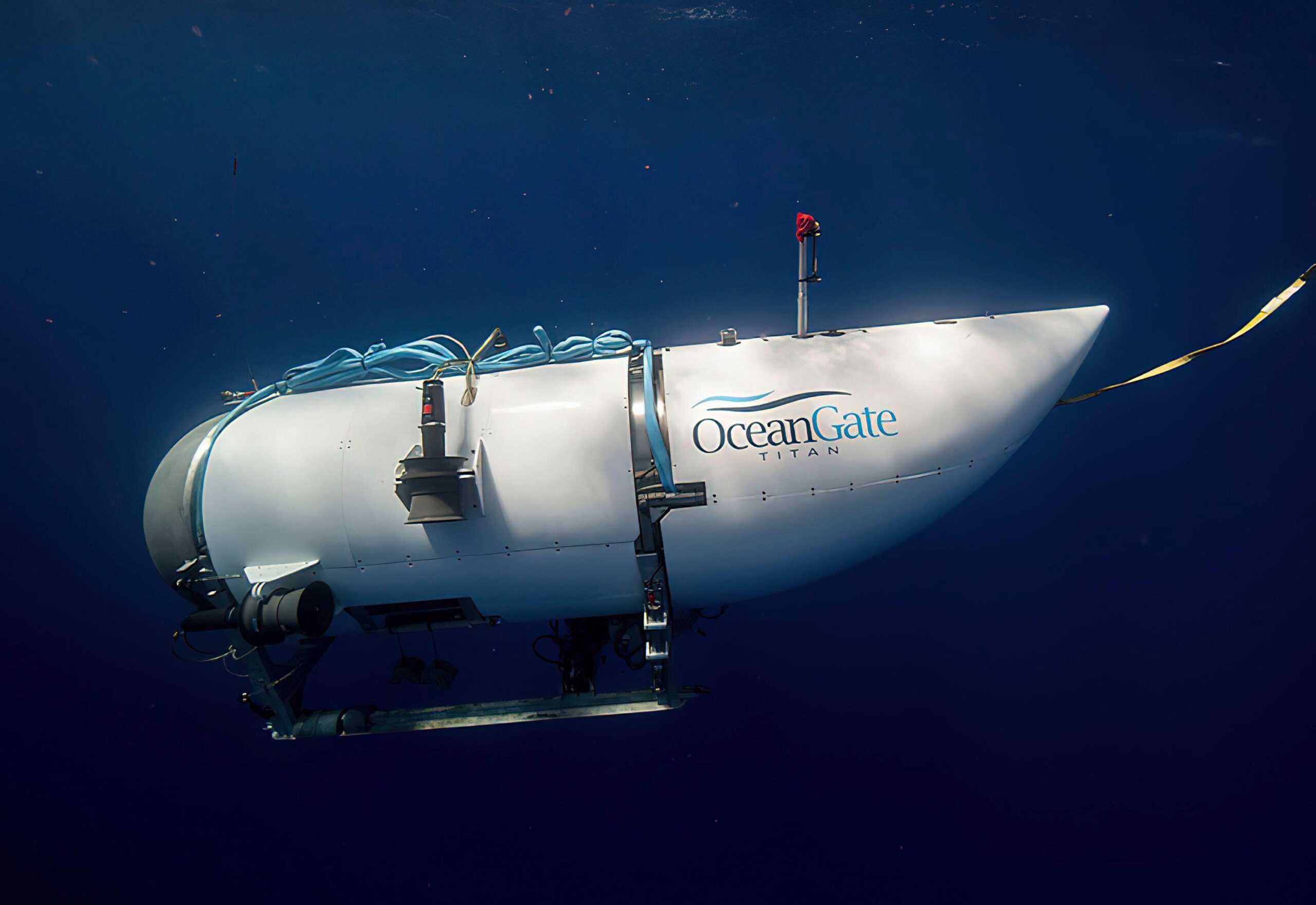

Authorities have already launched investigations into the deadly demise of OceanGate's Titan submersible, probes launched after the five people aboard were declared lost to a violent, deep sea implosion.
At the surface, an investigation is underway scrutinizing the cargo vessel Polar Prince, a Canadian-flagged ship that served as Titan's mothership. The Transportation Safety Board of Canada on Friday said it will investigate the support vessel and the circumstances of the operation. Other agencies may also become involved.
Meanwhile at the ocean floor, deep-sea robots were searching for clues about what happened leading up to the catastrophic implosion that likely occurred Sunday. The prospects of finding human remains amid the wreckage are slim.
On Thursday, a debris field was discovered near the search area for the missing vessel, ending a frantic, expensive and dramatic search that had been ongoing since Sunday. The discovery came as hope of finding survivors faded for another reason: Even an intact sub would run out of breathable air around Thursday morning, experts had warned.
Since the demise of the lost sub was confirmed, organizations cited by OceanGate as collaborators have distanced themselves from the project, questions have swirled about the safety of other adventure tourism industries and the millions of people who followed the search for the lost sub have struggled to comprehend the sudden, violent end that authorities believe befell the crew.
'That could’ve been us': Past Titan passengers, potential customers speak out
Amid news that the five people on board Titan had perished, people who had been on the sub in the past or who were offered seats on have spoken out, some raising safety concerns, others saying they felt they were in "good hands."
- Camera operator experienced multiple technical difficulties: “I 100% knew this was going to happen,” Brian Weed, a camera operator for the Discovery Channel’s “Expedition Unknown” show who went on a Titan test dive in 2021 in Puget Sound, told the Associated Press. Weed said on that trip, the crew experienced multiple technical difficulties.
- Journalist noted inconsistencies: CBS Correspondent David Pogue went on Titan last year and told USA TODAY before it was confirmed the sub was destroyed that he saw parts of the vessel that seemed "less sophisticated" in their construction. While he was on the surface support vessel, Pogue said the sub got "lost" on the ocean floor and couldn't find the Titanic for hours.
- Writer felt safe: Mike Reiss, a writer for "The Simpsons," said he had positive experiences on the dives he made with OceanGate, including to the Titanic wreck site. "I knew (the risks) going in there. I always felt I was in good hands," he told AP.
- Father, son could have been on doomed trip: Jay Bloom said OceanGate CEO Stockton Rush asked him and his son Sean to join the 2023 expeditions to Titanic. Bloom said he expressed safety concerns to Rush and ultimately backed out, he told CNN. "I just didn't think it could survive going that low into the ocean," Sean said. Bloom said his and his son's seats ended up going to Shahzada Dawood and his son Suleman, who died in the implosion. "All I could see when I saw that father and son was myself and my son. That could’ve been us,” Jay Bloom told CNN.
Couple drops lawsuit against OceanGate in wake of CEO's death
A pair of adventurers who sued OceanGate for fraud said they have dropped their lawsuit against the company that owned the Titan submersible.
Sharon and Marc Hagle sued OceanGate after they put money down for a trip to the Titanic wreckage site and the voyage never happened. The couple said the trip was both rescheduled and canceled, and they were told they would not receive a refund.
The Hagles are adventurers who became the first married couple on a commercial space flight last year, according to Purdue University, Marc’s alma mater.
The couple said in a statement to The Associated Press on Friday that they have decided to drop their legal action in the wake of CEO Stockton Rush’s death, along with four passengers, and the loss of the Titan at sea.
“Money is a driving force in our economy, but honor, respect and dignity are more important to the human soul,” the statement read. “We wish the entire OceanGate family and the families of those aboard the Titan the very best as they grieve the loss of their loved ones.”
-The Associated Press
Obama highlights disparity in response to migrant shipwreck and sub disaster
As a missing submersible with five wealthy passengers received days of nonstop media coverage, more than 700 people are feared dead in one of the worst migrant shipwrecks in the Mediterranean. Former President Barack Obama said in a Thursday interview on CNN that the uneven media attention received by the two tragedies was emblematic of the economic inequality plaguing democracies.
"Right now we have 24-hour coverage — and I understand it — of this submarine, the submersible that tragically is right now lost at the bottom of the sea," Obama said in an interview conducted hours before the U.S. Coast Guard confirmed the deaths of the five passengers. "At the same time, right here, just off the coast of Greece we had 700 people dead, 700 migrants who were apparently being smuggled."
Many are calling for an investigation after the Greek coast guard decided not to intervene to prevent the boat from sinking last week, days before Titan went missing.
"It's made news, but it's not dominating in the same way. In some ways, it's indicative of the degree to which people's life chances have grown so disparate," Obama added. "It's very hard to sustain a democracy when you have such massive concentrations of wealth." Read more here.
-Miles J. Herszenhorn, USA TODAY
Canada takes on investigation into Titan's support ship
As international authorities figure out who has jurisdiction over an investigation into what happened to the Titan, which lacked regulatory oversight, Canada has already claimed ownership over an investigation into the ship that was providing support to the submersible from the surface, the Polar Prince.
The Canadian Transportation Safety Board "will conduct a safety investigation regarding the circumstances of this operation conducted by the Canadian-flagged vessel Polar Prince," the agency said in a Friday announcement.
Because the Titan was a submersible, different from a submarine in that it wasn't fully autonomous, it required a ship to remain at the surface while it dived for support. Crews on the Polar Prince, a research vessel owned by Canadian company Horizon Maritime, would have been monitoring its location and using a communication system to send text messages between the two vehicles to guide the Titan to the wreckage of the Titanic.
But Polar Prince lost contact with Titan just an hour and 45 minutes into its dive on Sunday, and questions have been raised about why its crew didn't sound an alarm about the missing sub until eight hours after that. Salvatore Mercogliano, a Campbell University professor focusing on maritime history, told The Associated Press that the delay could have been because communication breakdowns between the sub and its mothership were common occurrences, so it didn't raise immediate alarms.
Sean Leet, head of Horizon Maritime, said earlier this week that the Polar Prince followed proper protocol, but wouldn't answer questions about the timeline.
Canada's transportation agency said there were 17 crew members and 24 total people on board the Polar Prince.
Who is liable after tragedy? Experts predict lawsuits, regulatory changes
The deadly implosion of an OceanGate submersible with a history of safety concerns has put a spotlight on the ways the company was able to circumvent regulations in the small industry. OceanGate CEO Stockton Rush, one of the five people who died on the Titan submersible, criticized industry safety standards and was able to skirt them by operating in international waters.
Now, the Titan's implosion could lead to lawsuits and a new push for regulatory changes, experts said. While it's unclear how likely these efforts are to succeed, previous high-profile tragedies, including the sinking of the Titanic itself, resulted in major legal fallout and public outcry.
Maritime law experts said it's likely the families of the passengers who died on Titan will file lawsuits. But the waiver their loved ones signed may present significant challenges, and it is unclear exactly where and how a lawsuit could play out. Part of the problem: it's unclear where a lawsuit could even be filed.
"I would be surprised if there isn't litigation arising from this disaster, but I think they've got a difficult road ahead of them," said Martin Davies, director of the Maritime Law Center at Tulane University in Louisiana. Read more here.
— N'dea Yancey-Bragg
What happened to the Titan sub? Hull construction, monitoring system could offer clues.
The former director of marine operations for OceanGate warned five years ago that its hull and safety monitoring system might only show a problem “milliseconds before an implosion — and would not detect any existing flaws prior to putting pressure onto the hull.”
Although the Titan had made a number of successful dives to the Titanic since 2021, experts say cracks or flaws in the hull could be precisely what caused the catastrophic implosion on Sunday that killed five people, including company founder Stockton Rush.
The carbon fiber-titanium composite is very new technology, said Eric Fusil, a submarine expert and associate professor in the University of Adelaide’s School of Electrical and Mechanical Engineering.
Titanium has the ability to be elastic, Fusil said. Basically it can compress a lot due to the pressure, but then return to its initial shape when the vessel returns to the surface. Carbon fibers are very stiff, he said, and they’re usually embedded into a matrix.
“We don't know what went wrong, but there is the likely explanation of, you know, a failure between the combination of these two opposite technologies,” he said.
— Dinah Voyles Pulver
Will Titan passengers' remains ever be found?
The conditions of the deep sea are so unknown and challenging and the implosion so catastrophic that the families of the five people who died could be long left with questions about what exactly happened to them.
On the ocean floor where the search crews found parts of The Titan 1,600 feet from the bow of The Titanic on Thursday, there is immense pressure, absolute darkness and extremely cold temperatures.
Even though human bodies that are lost at sea typically leads to decomposition in those conditions, one expert said because of the way the sub imploded and likely crushed the bodies inside, "it’s very, very unlikely you’ll find any distinguishable body parts."
The Coast Guard said Thursday they did not know if they would be able to recover the five bodies.
— Thao Nguyen and Kayla Jimenez
Family members remember victims
Loved ones of the men killed when the submersible imploded are remembering them as adventure-loving. OceanGate, the company that owned the Titan, said they had "a deep passion for exploring and protecting the world’s oceans."
Hamish Harding, a British explorer and dealer of private jets, "was one of a kind and we adored him," his family said in a statement. "What he achieved in his lifetime was truly remarkable and if we can take any small consolation from this tragedy, it’s that we lost him doing what he loved."
Another explorer on board, noted Titanic expert Paul-Henry Nargeolet, was "the ultimate prankster and had the BEST sense of humor," his stepson John Paschall tweeted Friday.
Paschall said Nargeolet's name will "live on in the oceanographic world forever."
"What makes me feel so fortunate is that I got to have him as a stepdad. He immediately welcomed me as family and our connection only grew stronger through the years," Paschall said.
"I can’t think of anything that I’m aware of that he would enjoy doing more than traveling around and sharing information and his experiences with people," longtime friend and former colleague Matthew Tulloch said of Nargeolet.
Contributing: The Associated Press
Source link








